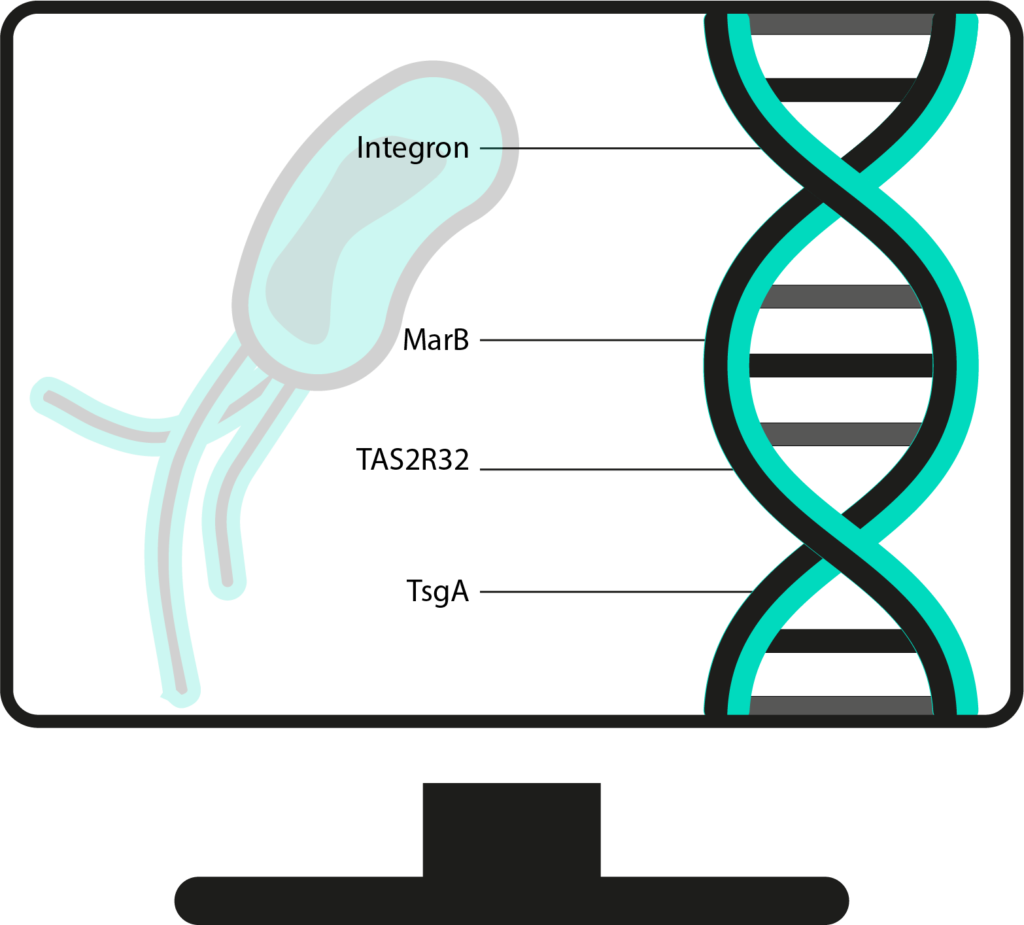Therapeutical phages need spot-on genome study
The study of phages genomic properties is one of the main steps to assess their safety for therapeutic use. This process enables detection of genes that make phages potentially harmful for the patient or the environment, such as antibiotic resistance, lysogeny, and pathogenicity genes.
Phage genome annotation is traditionally performed using bioinformatics tools that are designed for bacterial genomes. However, the different genome structure of phages and lack of phage gene entries in annotation databases cause poor gene calling performance and poor gene function annotation when bacteria-focused tools are used for phages. To allow a safe use of phage therapy, we offer a range of robust and phage-focused methods to characterize phage genomes.

Chosing the right bacterial strain for phage production
Bacterial strains used for phage production can release prophages. These dormant phages can contaminate phage productions and genetically modify them, which forbids therapeutic use. However, prophage presence can be predicted by studying the DNA of host strains. Our analysis solution takes advantage of multiple algorithmic and manual strategies to differentiate vestigial prophages and active prophages.

Ils nous font confiance


